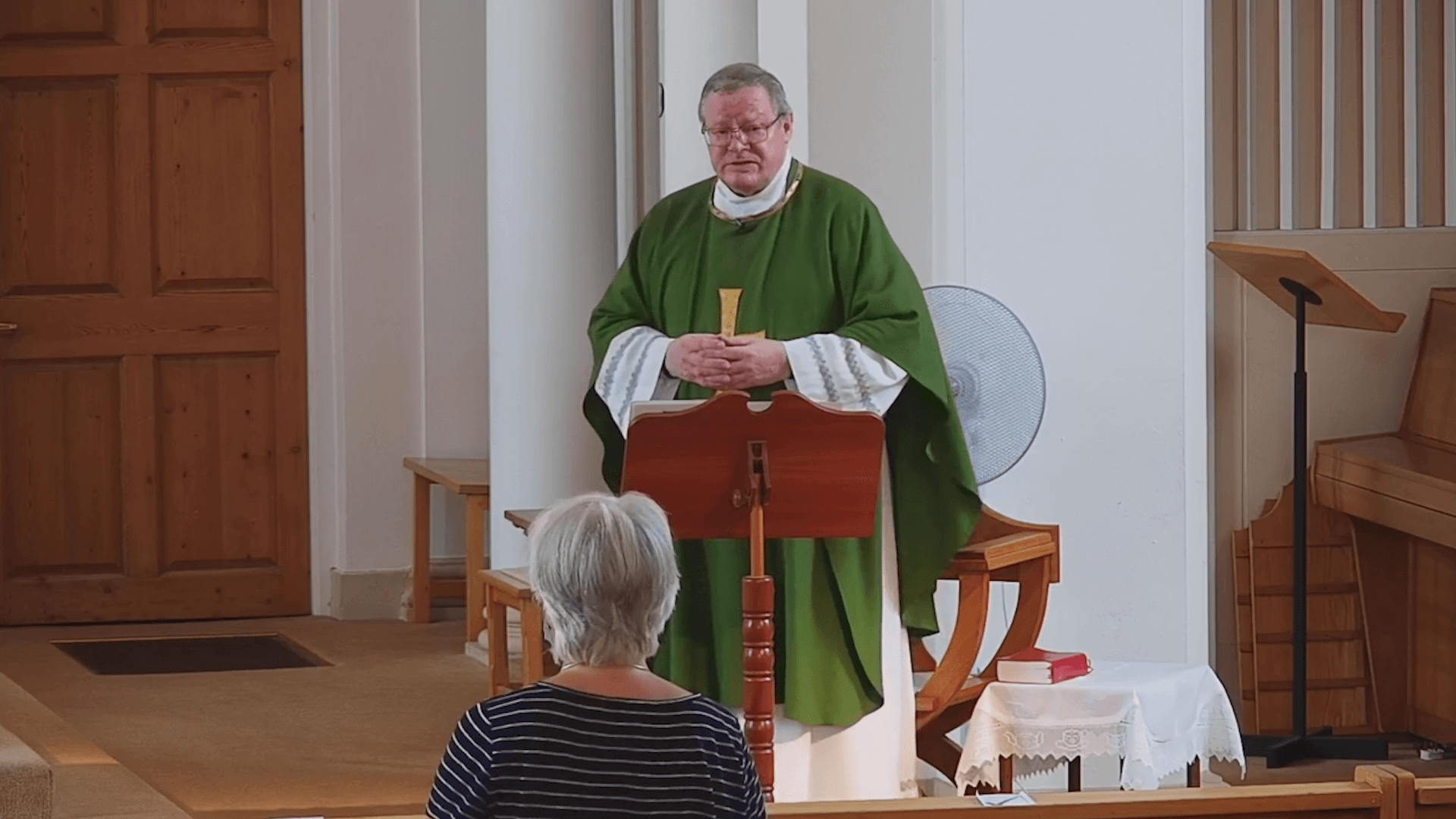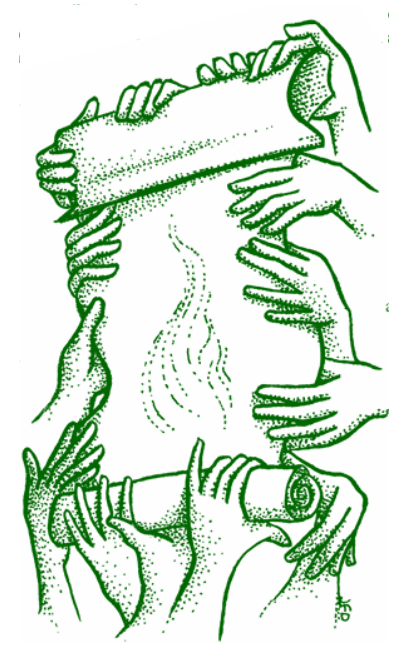









On this feast of the Most Holy Trinity, otherwise known as Trinity Sunday, each reading points to different aspects of God’s identity. The first reading recounts the glimpse of the creator God whom Moses encountered on Mount Sinai: a “merciful and gracious God, slow to anger and rich in kindness and fidelity.” Paul’s Letter to the Corinthians reminds us of the gifts that each person of the Trinity has to offer us: “the grace of the Lord Jesus Christ and the love of God and the fellowship of the Holy Spirit.” In the Gospel reading, John tells us of a God who loves us so much that he allowed his Son to leave his side and come into our world to experience human life.
The Gospel passage begins with the famous verse referenced on placards in the crowds at popular sporting events: John 3:16. “For God so loved the world that he gave his only Son so that everyone who believes in him might not perish but might have eternal life.” Martin Luther, the force behind the Protestant Reformation, called this verse “the Gospel in miniature.” Note that John’s view of God’s love and desire for salvation extends to the entire world. God so loved all of humanity that he sent his only Son, not “God so loved the Jews,” or the “early Jewish-Christians,” or the “Christians” who came after the Resurrection. This was a new way of thinking for many believers in Jesus’ time who were locked into a mind-set of an “in group” and an “out group.” Even today, many religious traditions can be very exclusive. If you are in the “out group” there isn’t much chance of working your way into the “in group” except through exacting work.
This passage suggests differently. God wants all people to be saved, and God will welcome all who live in the light (as John goes on to explain a few verses later). God didn’t send Jesus to condemn anyone, but some people choose against Jesus and God, thereby “condemning” themselves. God doesn’t act as a judge; individuals choose for themselves to accept or reject God.
Questions of the week
What does verse 3:16 mean to you: “For God so loved the world...”?
Which way of thinking do you tend to lean toward - believing that God is our judge or that we choose our own eternal destiny by how we choose to live our lives?
Please explain.









